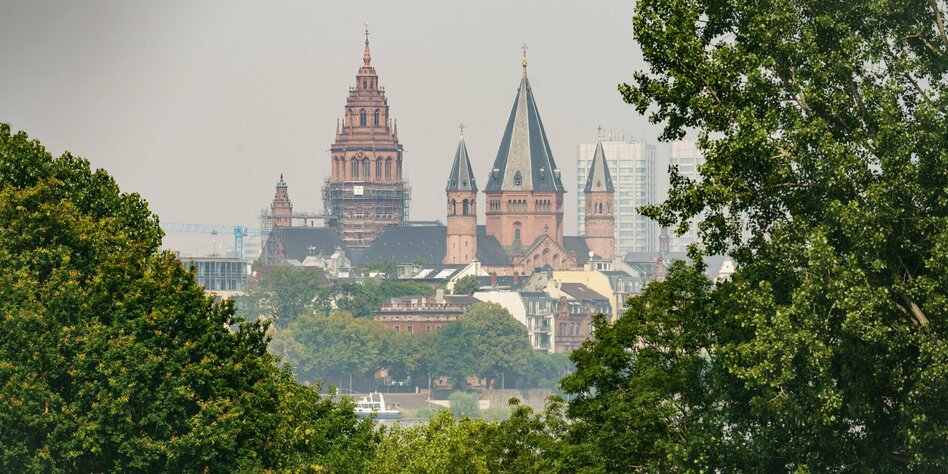In Mainz, the AfD did not gain any percentage points in the European elections. Our columnist explains what Germany can expect from the city.

Mainz is different, at least when it comes to AfD results Photo: Frank Rumpenhorst/dpa
Life is good in Mainz. The place where the Riesling and carnival chorus flows is still called Fassenacht is a little different than in many parts of Germany: the far-right AfD party won only 6 percent in the last European and local elections. It is a small amount, but the most important thing is that it is more or less the same as in the last elections. And the progressive forces even gained some. In the SWR round of voting on election night, the AfD in Mainz was so surprised by the result that it quickly questioned the figures: completely against the national trend? It can not be true.
But. Maybe. It can be said that the rightward shift of recent years and months has not occurred here. And there are good reasons for it. Anyone who lives in Mainz quickly realizes that the city's society is cosmopolitan and united. And that's not just an empty phrase. When there were protests against the AfD's deportation plans in early 2024, the local CDU and the local Free Voters were naturally also part of the demonstrations. That wasn't even up for debate.
In Mainz there are no “newcomers”, nor suspicion towards those new to the city. This attitude is deeply rooted in the Rhine and Main. There is something anti-authoritarian about the Mainz way of life. Barrel clubs are probably the biggest bulwark against fascists. If in doubt, the Nazis are simply expelled and are not even allowed to try to take over local structures. Like this year, when the leader of the AfD parliamentary group was not allowed to participate in the Rose Monday procession.
The AfD and its political representatives are isolated in the city: a few old men who have basically been in the radical right scene for years. Those who are now part of the AfD municipal council were on the same committee of the right-wing republicans 20 years ago. Among young people here it is not attractive to be right-wing radicals. The motto is no nonsense for the Nazis. Then they won't serve you spritzer wine.
The social climate is a real resource
Of course, none of this works in a vacuum. Mainz has been pursuing a successful economic policy for years, which has generated a general spirit of optimism. The rest of the Federal Republic should learn from us, because Mainz is not an island. The city is in Germany, the houses here are built of stone and everything else is very earthy. Mainz is not even a typical outlier municipality with terribly high business income, but has been chronically heavily indebted for 30 years and was only briefly debt-free thanks to Biontech. Don't worry: the coffers of the city of Mainz are empty again.

This text comes from Laborable day. Our left-wing weekly! Every week, wochentaz is about the world as it is and as it could be. A left-wing weekly with a voice, attitude and a special vision of the world. New every Saturday on newsstands and of course by subscription.
The fact that Mainz is a biotech location does not have to remain so. Biontech may leave the city if it becomes more attractive elsewhere. Mainz is still a city of 200,000 inhabitants and not Berlin or Hamburg. But if an urban society offers an attractive climate, skilled workers will move in and companies will expand their locations.
The social climate is a real resource that has a very direct impact on the economic development of the regions and, therefore, on the success or failure of fascists. They want the opposite, they want an environment of nationalism, isolation and xenophobia, which leaves corporate headquarters behind.
The social climate begins with us. Let's all be a little Mainz.
